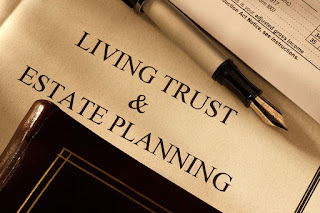What Does the Guardian of an Aging Adult do?
When an aging adult is no longer capable of making important decisions for him or herself, they will often rely on someone else to make those decisions for them. The person who makes those decisions is known as the guardian of the aging adult. The guardian has the responsibility of acting in the best interest of the aging adult by making appropriate decisions that will benefit that individual.
It is necessary for the right person to be selected to take on the role of the
guardian in situations where an elderly adult needs the extra assistance.
Handling the Finances
The
guardian is responsible for handling the finances of the aging adult. Handling
the finances means paying attention to bank accounts for any strange or unusual
activity, making sure all bills are paid, and using money from the account to
pay for the adult’s necessities, such as groceries, clothes, bed sheets, and
other items that are needed around the home. The aging adult might struggle to
make purchasing decisions due to a condition that he or she has been diagnosed
with, such as dementia. However, the responsible guardian can make appropriate
purchasing decisions on behalf of the aging adult while making sure those
financial decisions are in his or her best interests.
Communicating With Caretakers and Physicians
Along with
handling the finances for the aging adult, the guardian would need to regularly
communicate with caretakers and physicians about the well-being of the adult.
It is important for everyone to keep the communication flowing between one
another. The guardian needs to let physicians and caretakers know of any
problems the aging adult has had recently. If the adult is having a difficult
time with mobility or if he or she has fallen and ended up in the hospital at
some point, it is necessary to make everyone aware of the situation. Physicians
will ask the guardian questions and depend on the guardian to make decisions on
behalf of the aging adult when it comes to the kind of care he or she will
receive in the office or at the hospital.
Caretakers
may need to come out to the home regularly to assist with different tasks. For
example, caretakers often help with bathing, providing medicine reminders, and
making food for the aging adults because the adult can no longer do those
things. If there are any issues or if the guardian has any concerns about the
care provided at home, the guardian would need to contact the home care company
that sends the caretaker out to provide services to the aging adult.
Have an Aging Adult in Your Life? Contact Giro Law Today
Is there
an aging adult in your life, such as your grandparents or your parents? You
might need to act as the guardian for this individual because he or she can no
longer make decisions or handle certain tasks alone. If so, contact Giro Law. Call us today at 201-690-1642 or
complete the form on our website. Book your consultation to meet with us and
discuss the possibility of becoming a guardian for your loved one.


Comments
Post a Comment